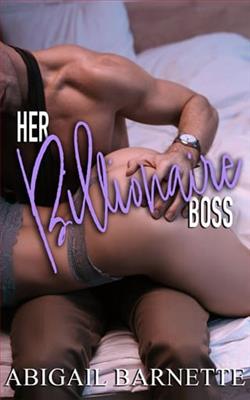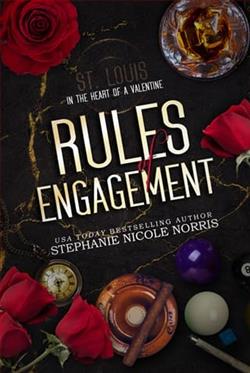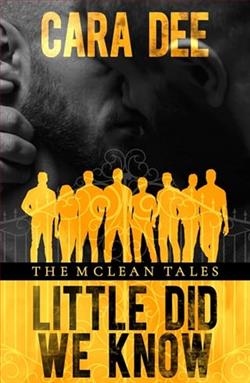Page 12 of Broken Roads
A man in his fifties with kind eyes notices me lingering. "First time?" he asks.
I shake my head. "First time here. Not... not my first meeting."
He nods like this makes perfect sense and gestures to the empty chairs. "Well, come on in. Coffee's terrible, but at least it's hot."
My feet move forward on their own, carrying me into the circle of light. I select a chair near the edge—close enough to be present, far enough to escape if I need to. I fold my handsin my lap to keep them from shaking, watching as the last few stragglers find seats.
The meeting begins with familiar rituals—the serenity prayer, the reading of steps, the gentle reminder that what's said here stays here. I mouth the words without sound, letting the rhythm wash over me. It's the same in Chicago, in Montana, probably in every church basement and community center across the country. There's comfort in that sameness, a thread connecting all of us who've fallen and are trying to stand again.
"Anyone new tonight? Or visiting?" asks the leader, a woman with silver-streaked hair and glasses hanging from a beaded chain.
Several people glance my way. I raise my hand slightly, just enough to be seen. "I'm Hailey. I'm... I'm six months sober. Just moved to the area."
"Welcome, Hailey," the room echoes, and then attention shifts, allowing me to sink back into anonymity.
One by one, people share. A construction worker talks about passing a liquor store every day on his way home, how some days he still pulls into the parking lot before forcing himself to drive away. A young mother describes the moment her six-year-old asked why Mommy's juice made her so sleepy. An older man celebrates three years without a drink, his voice breaking when he mentions his daughter speaking to him again.
Each story hits close to some part of me. Not exactly my story, but adjacent, like looking at my reflection in broken glass. Different angles of the same desperation.
Then a man about my age speaks, his voice quiet but steady. "It's been eight months since the accident. I don't remember much about that night. Bits and pieces. I was coming home from a party. It was raining..."
My chest constricts, lungs suddenly too small. I know what comes next. I know because I've lived it.
"I hit a guardrail. Spun out. Flipped the car."
The screech of tires fills my ears. Not his, mine. Metal crunching, glass shattering into a thousand crystalline daggers. The world spins, upside down, then right side up, then nothing. I taste copper in my mouth, feel the sticky warmth of blood running down my temple.
"The cop said I was lucky no one else was involved. Lucky." He laughs without humor. "I didn't feel lucky waking up in the hospital. I felt—"
Guilty. Terrified. Like I wanted to crawl out of my own skin and leave it behind. My hands tremble violently in my lap, and I press them between my knees, trying to still them. The room tilts slightly, the fluorescent lights suddenly too bright, too damn harsh.
"—like I was given one more chance, and I didn't deserve it."
I close my eyes, trying to block out his words, but they find me anyway. I see headlights through rain-streaked glass. Hear the thud of impact. Feel the awful, suspended moment before I understood what I'd done.
"Hailey?" The meeting leader's voice breaks through the roar in my ears. "Are you alright?"
I force my eyes open to find everyone looking at me with concerned expressions. The man has stopped speaking, his story interrupted by whatever he sees on my face.
"I'm fine," I lie, the words scraping my throat raw. "Please, continue."
He hesitates, then nods, finishing his story with something about rebuilding trust with his family. I don't fully hear it. The blood rushes too loudly in my ears, drowning out everything except the memories I've tried so hard to bury.
The meeting continues around me. I sit rigid in my chair, trying to pull myself back together, piece by fragmented piece. No one asks me to share. The leader's eyes find mineoccasionally, gentle with understanding, but she doesn't push. For that small mercy, I'm pathetically grateful.
When they close with the serenity prayer, my lips form the words automatically, but my mind is somewhere else. Back in Chicago, in the rain, at the moment everything changed.
God, grant me the serenity to accept the things I cannot change...
But that's the problem, isn't it? Some things can't be accepted. Some things can't be fixed or forgiven, no matter how many meetings I attend or chips I collect. Some debts can never be repaid.
The circle breaks apart, people moving toward the coffee station or gathering in small groups to talk. I remain seated, not trusting my legs to hold me. Six months of sobriety suddenly feels like a drop in an ocean of guilt that will never recede.
When I finally move, the night air hits me like a wake-up call as I push through the community center doors. My lungs expand, desperate for oxygen that doesn't taste like shame. The parking lot is half-empty now, stragglers saying goodbyes beside their cars or lingering for those precious moments of connection before facing the world alone again. I keep my head down, keys clutched so tightly in my palm that the metal teeth bite into my skin. Pain I can control, at least.
I make it to my car and sink against the driver's door, forehead pressed to the cool metal. Inside the meeting, I'd held myself together with sheer will and shallow breathing. Out here, with no one watching, I feel the cracks spreading across my surface.
The six-month chip burns in my pocket like a brand. A lie. Six months of sobriety doesn't erase what I've done. Doesn't bring back—















